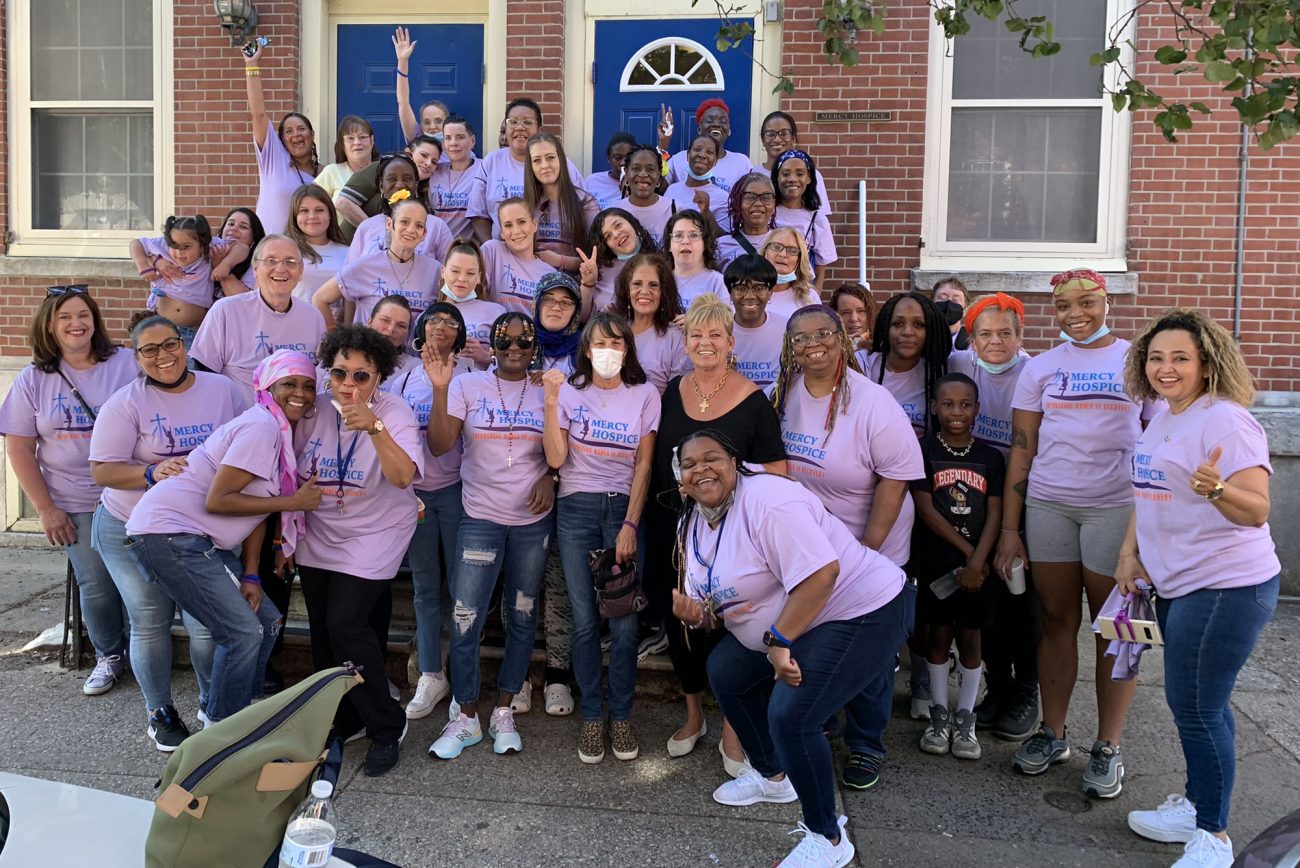An archdiocesan agency is helping women overcome addiction, while finding grace and joy amid their challenges.
On Sept. 21, Catholic Social Services (CSS) sponsored its third annual “Recovery Walk” through downtown Philadelphia, drawing more than 50 clients, staff and friends of Mercy Hospice, Women of Hope and McAuley House, the agency’s longtime ministries for women facing addiction, homelessness and mental health challenges.
The outreaches, all beneficiaries of the annual Catholic Charities Appeal, are part of a constellation of CSS sites throughout the five-county area that collectively serve thousands of individuals each year. Over the last two years, Mercy Hospice alone has aided more than 200 women and dozens of children in its mission to provide stability to families experiencing homelessness while in recovery from substance abuse.
[hotblock]
The walk — part of National Recovery Month, an annual observance originally designated by the U.S. Department of Health and Human Services – began with a blessing by Father Douglas McKay, founder and chaplain of Our House Ministries, a Catholic recovery outreach adjacent to St. Gabriel Parish in the city’s Grays Ferry neighborhood.
“The enthusiasm of these women is really contagious,” he said as the group made its way through the city’s Washington Square West neighborhood, chanting “We do recovery” and garnering cheers from passersby.
The walk was also an opportunity for evangelization, said Father McKay.
“We’re bringing awareness (of recovery) to everyone … and (awareness that) the Lord offers us abundant life and complete joy.”
Archdiocesan secretary for Catholic Human Services James Amato agreed.
“It’s so important to give witness to our faith, our hope and the charitable mission of the church,” he said. “It’s embodied in the women we serve here who are dedicating their lives to recovery, and to building themselves and (becoming) more whole, and more connected with Christ.”
That sense of connection counters the isolation experienced by those in addiction – and even in recovery itself, said Amy Stoner, director of CSS’s community-based and homelessness services division.
[hotblock2]
By “shouting to the mountaintops recovery is possible,” the walk’s participants demonstrated “they’re not ashamed of the fact they’re in recovery,” she said. “They feel blessed each day that they are able to work the program and stay sober.”
In fact, “weaknesses and imperfections,” such as addiction, “are the privileged places where God can reveal his glory,” said Meghan Cokeley, director of the archdiocesan Office for the New Evangelization.
A few weeks prior to the recovery walk, Cokeley was the featured speaker at a CSS-sponsored Sept. x-x retreat attended by a number of walk participants at Malvern Retreat House.
Cokeley read aloud from St. Paul’s Second Letter to the Corinthians, in which the apostle described his own struggle with an unspecified “thorn in the flesh” that ultimately deepened his reliance on God’s grace (2 Cor 12:1-10).
Confronting personal failings and flaws can lead to excessive “introspection, getting down on ourselves and feeling ashamed,” she said, provoking the temptation to “self-medicate.”
Instead, Cokeley advised the participants, “Let (the Holy Spirit) speak to you and tell you how much he loves you.”
With that knowledge, “we can love each other in our own imperfection,” she said.
Marcey Canalichio, a certified recovery specialist at Mercy Hospice and a former client of the facility, said she works to do just that “every day” with women in addiction.
“People (entering recovery) feel vulnerable, and that’s what helps me to do my job,” she said. “I remember what it felt like, coming in. …I know that a smile, an ear to listen can mean so much.”
For those still unable to reach out for help, Canalichio has a message of hope.
“Your journey’s not over yet,” she said. “You’re here for a reason.”
***
If you or a loved one are experiencing a medical emergency amid addiction, call 911 immediately.
If you or a loved one are suicidal, call or text 988 or chat 988lifeline.org to reach the 988 Suicide & Crisis Lifeline, or contact emergency medical services immediately by dialing 911.
For information about Catholic Social Services’ resources for addiction recovery, visit the CSS Recovery and Hope website.
PREVIOUS: Archbishop Pérez, local faithful to gather for Ukraine benefit
NEXT: Delco parish garden wins prize, and hearts



Share this story